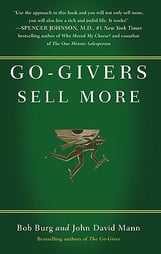Typically, when a salesperson doesn't win an account it's due to a few different factors; the prospect didn't have a compelling reason to make a change, the salesperson didn't do enough to uncover their capacity to invest, or the incumbent wasn't properly eliminated from the running.
In this article, we discuss the 3 Rules every successful salesperson must follow in order to eliminate stalls and objections during the sales process.

There is an age-old debate about which came first, the chicken or the egg. While that debate may never be solved, there is one “which comes first” situation that shouldn’t be up for debate and that is “see the solution first or know the budget first?”
In my work with helping client’s develop their sales talent, I know there are two topics that get avoided on a regular basis, and both are to the detriment of the sales person. Those two “taboo topics” are discussing the incumbent and uncovering the budget. I will address the incumbent discussion in a later blog.When I refer to the budget, I am referring to it in three categories commonly known as ‘TMR’—Time, Money, and Resources. What are they willing to commit, in the context of time, money and/or resources to make their problem go away? It is my experience that the stronger sales professionals don’t shy away from that discussion. They are successful because they follow these rules.
Rule 1#
Have the conversation. The 800 lbs. budget gorilla is in the room so talk about it. Don’t make it part of your opening conversation, but don’t ignore it either. If the need is big enough, and your solutions fixes it, most of the time, they will find the money.
Rule #2
Provide context. Regardless of the investment your prospect needs to make to fix their problem, it needs to be framed in the context of their pain and your ability to eliminate it. If the pain is minimal, then your solution won’t seem that great. We’ve had prospects tell us their problem is a “two-comma problem” meaning their cost of turnover was over $1 million dollars. That’s context. Know their cost before you proceed
Rule #3
Don’t show your solution until you know the budget. It’s really that simple. If you have ever provided a solution to a prospect only to hear them say “that’s more than we intended to spend”, then you have an issue discussing the budget. Does it make sense to know their appetite for change, including budget, before you provide your solution? Here is where the strong sales professional is different. If the prospect doesn’t want to discuss budget, they know it can be for one of two reasons. They haven’t uncovered enough pain or the prospect simply wants to use you as a pencil sharpener for the competition. You don’t get paid to be a pencil sharpener so don’t become one.
In closing don’t be afraid of the conversation. In the history of sales, no one died from discussing budget. I doubt you will be the first.



